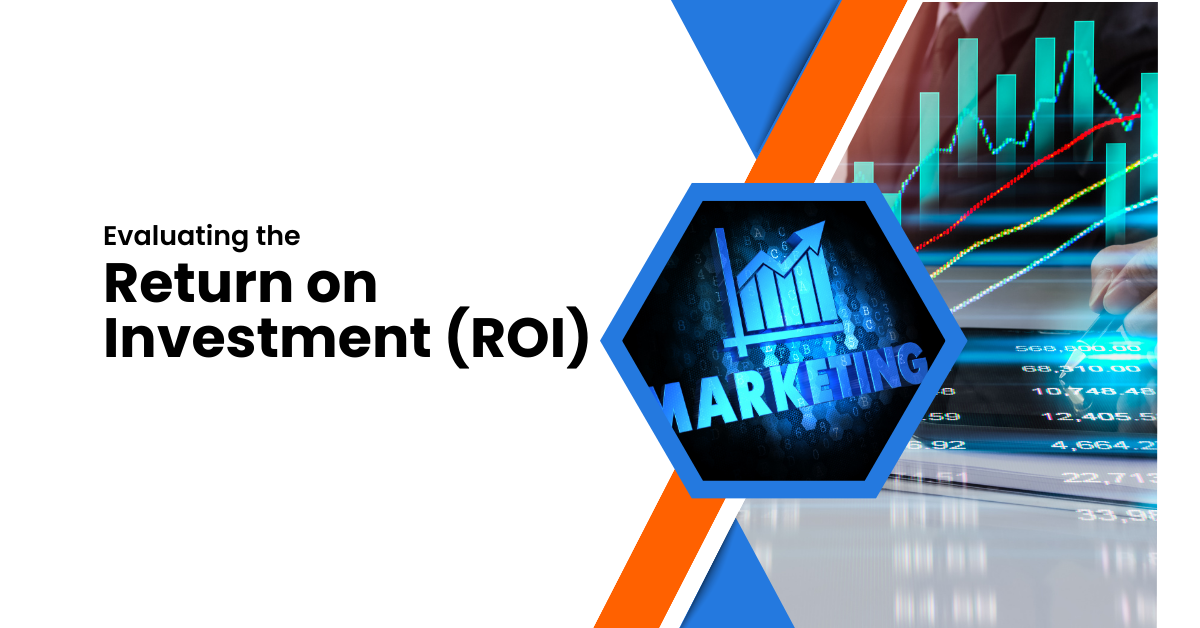It is a valuable investment for anyone looking to build a career in digital marketing.
Is the Digital Marketing Course Worth It? A Comprehensive Analysis
In today’s rapidly evolving digital landscape, marketing has transcended traditional methods, requiring new skills and strategies to effectively engage audiences. As a result, digital marketing courses have surged in popularity, promising to equip individuals with the tools needed to thrive in this dynamic field.
Is Digital Marketing Course Useful or Not?
However, with a myriad of options available, from online classes to in-person workshops, it’s essential to evaluate whether these courses are worth the investment of time and money. This comprehensive analysis delves into the value of digital marketing courses, exploring their benefits, drawbacks, and overall efficacy.
Understanding Digital Marketing Course
Before assessing the worth of digital marketing courses, it’s crucial to understand what digital marketing entails. Digital marketing encompasses a range of strategies and techniques aimed at promoting products or services through digital channels. Key components include:

- Search Engine Optimization (SEO): Improving a website’s visibility on search engines like Google.
- Content Marketing: Creating and distributing valuable content to attract and engage audiences.
- Social Media Marketing: Utilizing platforms like Facebook, Instagram, and Twitter to reach potential customers.
- Email Marketing: Using email campaigns to communicate with and nurture leads.
- Pay-Per-Click (PPC) Advertising: Running paid ads on search engines and social media to drive traffic and conversions.
- Affiliate Marketing: Partnering with other businesses to promote products and earn commissions.
- Analytics: Measuring and analyzing data to optimize marketing strategies.
Is the Digital Marketing Course Worth It?
The Growing Demand for Digital Marketers

The rise of digital platforms has led to an increased demand for skilled digital marketers. According to various industry reports, digital marketing roles are among the fastest-growing job categories. For instance, the U.S. Bureau of Labor Statistics projects that employment in advertising, promotions, and marketing management will grow by 10% from 2020 to 2030, faster than the average for other occupations.
This surge in demand is driven by businesses recognizing the necessity of a strong online presence. Companies of all sizes and industries are investing heavily in digital marketing to stay competitive, leading to a significant shortage of qualified professionals. Digital marketing courses aim to fill this gap by providing the knowledge and skills needed to succeed in this field.
Type of Digital Marketing Courses
Digital marketing courses come in various formats and structures, catering to different learning preferences and needs. Here are some common types:
- Online Courses: Offered by platforms like Coursera, Udemy, and LinkedIn Learning, these courses provide flexibility and convenience. They often feature video lectures, quizzes, and interactive elements.
- Certification Programs: Institutions like HubSpot, Google, and SEMrush offer certification programs that provide a more structured curriculum and are recognized by employers.
- Bootcamps: Intensive, short-term programs designed to provide hands-on experience and fast-track learning. They typically focus on practical skills and real-world applications.
- University Degrees: Some universities offer degree programs in digital marketing or related fields. These programs are more comprehensive but require a greater time and financial commitment.
- Workshops and Seminars: Short-term, in-person events focusing on specific aspects of digital marketing. They offer opportunities for networking and direct interaction with industry experts.
Benefits of Digital Marketing Courses
Digital marketing course enrolling in a digital marketing course offers several advantages:
- Structured Learning
Courses provide a structured approach to learning, covering essential topics in a logical sequence. This helps students build a solid foundation and understand how different aspects of digital marketing interconnect.
- Industry-Relevant Skills
Many courses are designed in collaboration with industry experts and reflect current trends and best practices. This ensures that learners acquire relevant skills that align with employer expectations.
- Networking Opportunities
Courses often offer opportunities to connect with peers, instructors, and industry professionals. Networking can lead to valuable connections, job opportunities, and collaborations.
- Certification and Credibility
Completion of a reputable course often results in a certificate or credential, which can enhance a resume and demonstrate expertise to potential employers. Certifications from well-known platforms or institutions are particularly valued in the industry.
- Practical Experience
Many courses include hands-on projects, case studies, and real-world scenarios. This practical experience helps learners apply theoretical knowledge and build a portfolio of work.
- Flexibility
Online courses and bootcamps offer flexibility in terms of timing and location, allowing individuals to learn at their own pace and fit their studies around other commitments.
- Hands-On Experience
Many digital marketing courses include practical components such as live projects, case studies, and simulations. These hands-on experiences allow learners to apply theoretical concepts to real-world scenarios, enhancing their problem-solving skills and building a portfolio of work.
- Mastery of Digital Tools and Platforms
Courses often provide training on various digital marketing tools and platforms, such as Google Analytics, Facebook Ads Manager, and SEO tools. Mastery of these tools is essential for executing effective digital marketing strategies and can make learners more proficient and efficient in their roles.
Drawbacks and Considerations
Despite their benefits, digital marketing courses also have potential drawbacks:
- Cost
The cost of digital marketing courses can vary significantly, from affordable online courses to expensive university programs. It’s essential to weigh the cost against the potential return on investment and career advancement.
- Quality Variability
The quality of digital marketing courses can vary widely. Some courses may offer outdated content or lack practical relevance. Researching course reviews, instructor credentials, and course content is crucial to ensure you’re investing in a high-quality program.
- Time Commitment
While online courses offer flexibility, they still require a significant time commitment. Balancing coursework with other responsibilities can be challenging, especially for full-time professionals.
- Practical Application
Some courses may focus more on theory than practical application. It’s important to choose programs that include hands-on projects and real-world case studies to gain practical experience.
- Overemphasis on Tools
Certain courses may emphasize specific tools or platforms, which can become obsolete or less relevant over time. A well-rounded course should focus on fundamental principles and strategies that are adaptable to different tools and platforms.
Evaluating the Return on Investment (ROI)
When considering whether a digital marketing course is worth it, evaluating the potential return on investment (ROI) is crucial. Here are some factors to consider:

- Career Advancement
Assess how the course may impact your career prospects. Will it lead to new job opportunities, promotions, or higher salaries? Research job market trends and salary benchmarks for digital marketing roles to gauge potential career benefits.
- Skill Development
Consider whether the course will equip you with skills that are in high demand. Look at job descriptions and industry requirements to ensure that the course aligns with the skills employers are seeking.
- Networking and Connections
Evaluate the networking opportunities provided by the course. Connections with industry professionals, instructors, and peers can enhance your career prospects and provide valuable insights into the industry.
- Practical Application
Determine whether the course includes practical elements such as projects, case studies, and real-world applications. Practical experience is essential for demonstrating your skills to potential employers and applying what you’ve learned.
- Certification and Recognition
Research the value of the certification or credential offered by the course. Reputable certifications from well-known platforms or institutions can enhance your resume and increase your credibility in the job market.
Alternative Learning Paths
Digital marketing is a field where continuous learning and adaptation are key. Besides formal courses, consider these alternative learning paths:
- Online Resources
Many free or low-cost online resources, such as blogs, webinars, and YouTube channels, offer valuable insights into digital marketing trends and strategies.
- Industry Conferences and Events
Attending industry conferences, webinars, and workshops can provide up-to-date information and networking opportunities. These events often feature expert speakers and hands-on sessions.
- On-the-Job Experience
Gaining practical experience through internships, freelance projects, or part-time roles can complement formal education and enhance your skills. Real-world experience is invaluable for understanding how digital marketing strategies are applied in practice.
- Professional Communities
Joining professional communities and forums, such as LinkedIn groups or industry associations, can provide ongoing learning opportunities and access to industry experts.
Success Stories and Testimonials
To better understand the impact of digital marketing courses, consider exploring success stories and testimonials from individuals who have completed these programs. Many course providers feature case studies and testimonials from alumni who have achieved career advancement, landed new roles, or started their own businesses as a result of their training.
Making the Decision
Deciding whether to invest in a digital marketing course involves evaluating your personal goals, career aspirations, and learning preferences. Consider the following steps:
- Define Your Goals: Determine what you want to achieve with a digital marketing course. Are you looking to switch careers, advance in your current role, or start your own business?
- Research Courses: Investigate various courses, their content, instructors, and reviews. Look for programs that align with your goals and offer practical, up-to-date training.
- Consider Alternatives: Explore alternative learning paths and determine if they might provide the knowledge and skills you need at a lower cost or with more flexibility.
- Evaluate ROI: Assess the potential return on investment based on career advancement, skill development, and certification value.
Enhanced Career Opportunities
- Growing Demand for Digital Skills
The digital marketing field is experiencing rapid growth, with businesses of all sizes seeking skilled professionals to navigate the online landscape. According to various industry reports, digital marketing roles are among the fastest-growing job categories. By completing a digital marketing course, you position yourself as a candidate with relevant skills in high demand.
- Diverse Career Paths
Digital marketing encompasses various specializations, including SEO, content marketing, social media management, email marketing, and PPC advertising. A course can provide foundational knowledge and speciali
Building the Skills Necessary to Start a Marketing Agency
Starting a marketing agency can be a rewarding venture, offering the opportunity to leverage your creativity and strategic thinking while helping businesses achieve their marketing goals. However, launching and running a successful marketing agency requires a diverse set of skills, ranging from technical marketing expertise to business management. This guide outlines the essential skills you need to develop and the steps to take to build a successful marketing agency.
Core Marketing Skills
1. Strategic Planning
- Market Research: Understand your target market, including their needs, preferences, and behaviors. Conduct competitive analysis to identify gaps and opportunities.
- Campaign Strategy: Develop comprehensive marketing strategies tailored to different business goals, whether it’s brand awareness, lead generation, or sales conversion.
- Goal Setting: Set clear, measurable objectives and key performance indicators (KPIs) to track progress and evaluate the effectiveness of your campaigns.
2. Digital Marketing Expertise
- Search Engine Optimization (SEO): Master the techniques to improve website visibility in search engines. This includes keyword research, on-page optimization, link building, and technical SEO.
- Content Marketing: Create and distribute valuable content that attracts and engages your target audience. This includes writing, graphic design, and multimedia production.
- Social Media Management: Develop strategies for leveraging social media platforms to build brand presence, engage with audiences, and drive traffic.
- Email Marketing: Design and execute email campaigns that nurture leads and build customer relationships, using segmentation, automation, and performance analysis.
3. Data Analysis and Reporting
- Analytics Tools: Use tools like Google Analytics, social media insights, and CRM systems to track and analyze campaign performance.
- Data Interpretation: Learn to interpret data to make informed decisions, optimize strategies, and demonstrate ROI to clients.
- Reporting: Develop skills in creating clear, actionable reports that communicate results and insights effectively.
Technical Skills
1. Website Development and Management
- Basic Web Design: Understand the fundamentals of web design, including layout, user experience (UX), and responsive design.
- Content Management Systems (CMS): Familiarize yourself with popular CMS platforms like WordPress, Joomla, or Drupal for managing client websites.
2. Advertising Platforms
- Pay-Per-Click (PPC) Advertising: Gain proficiency in managing paid advertising campaigns on platforms such as Google Ads and social media networks.
- Programmatic Advertising: Understand programmatic ad buying and real-time bidding to enhance campaign targeting and efficiency.
Business Management Skills
1. Financial Management
- Budgeting and Forecasting: Develop skills in creating budgets, forecasting revenues, and managing expenses to ensure profitability.
- Pricing Strategies: Learn how to price your services competitively while ensuring that you cover costs and achieve your financial goals.
2. Client Management
- Communication: Build strong communication skills to effectively interact with clients, understand their needs, and manage expectations.
- Project Management: Use project management tools and techniques to oversee campaigns, manage deadlines, and coordinate with team members.
3. Sales and Business Development
- Lead Generation: Develop strategies for generating leads and acquiring new clients through networking, referrals, and outbound marketing.
- Proposal Writing: Craft compelling proposals and pitches that showcase your agency’s value and capabilities.
Leadership and Team Management
1. Team Building
- Hiring: Learn how to recruit and select talent that aligns with your agency’s needs and culture.
- Motivation: Develop strategies to motivate and manage a team, fostering a collaborative and productive work environment.
2. Delegation and Workflow Management
- Delegation: Master the art of delegating tasks effectively, ensuring that team members are empowered and that projects run smoothly.
- Workflow Optimization: Implement processes and tools to streamline workflows, enhance efficiency, and ensure consistent delivery of services.
Networking and Industry Knowledge
1. Industry Trends
- Stay Informed: Keep up-to-date with the latest marketing trends, tools, and best practices by following industry blogs, attending webinars, and participating in conferences.
2. Networking
- Professional Relationships: Build a network of industry professionals, potential clients, and partners. Engage in industry events and online communities to expand your connections.
Legal and Compliance Knowledge
1. Contracts and Agreements
- Legal Documentation: Understand the basics of creating contracts and agreements to protect your agency and clients. This includes service agreements, confidentiality clauses, and intellectual property rights.
2. Compliance
- Regulations: Be aware of relevant regulations and standards, such as data protection laws (e.g., GDPR) and advertising guidelines, to ensure compliance and avoid legal issues.
Steps to Build a Successful Marketing Agency
- Create a Business Plan: Develop a comprehensive business plan outlining your agency’s mission, target market, services, pricing structure, and financial projections.
- Build a Strong Brand: Establish a strong brand identity for your agency, including a professional website, logo, and marketing materials that reflect your expertise and values.
- Develop a Portfolio: Build a portfolio showcasing your previous work, case studies, and client testimonials to demonstrate your capabilities and attract potential clients.
- Assemble a Team: Recruit talented individuals with the skills necessary to support your agency’s services and operations. Ensure that you have a well-rounded team with expertise in various aspects of digital marketing.
- Market Your Agency: Implement marketing strategies to promote your agency, including content marketing, social media, SEO, and networking. Develop a strong online presence to attract and engage potential clients.
- Provide Exceptional Service: Focus on delivering high-quality services and building strong relationships with clients. Your reputation for excellence will be key to your agency’s growth and success.
- Monitor and Adapt: Regularly review your agency’s performance, client feedback, and industry trends. Be prepared to adapt your strategies and services to meet changing market demands and opportunities.
Digital marketing courses can be a valuable investment for individuals seeking to enter or advance in the field of digital marketing. They offer structured learning, industry-relevant skills, and networking opportunities. However, it’s essential to carefully evaluate the cost, quality, and practical application of the courses you’re considering. By weighing the benefits against potential drawbacks and exploring alternative learning paths, you can make an informed decision that aligns with your career goals and personal circumstances.
Ultimately, the worth of a digital marketing course depends on how well it meets your specific needs and contributes to your professional growth. Whether you choose a formal course, an alternative learning path, or a combination of both, ongoing learning and adaptability are key to succeeding in the ever-evolving world of digital marketing.


3 thoughts on “Is the Digital Marketing Course Worth It?”